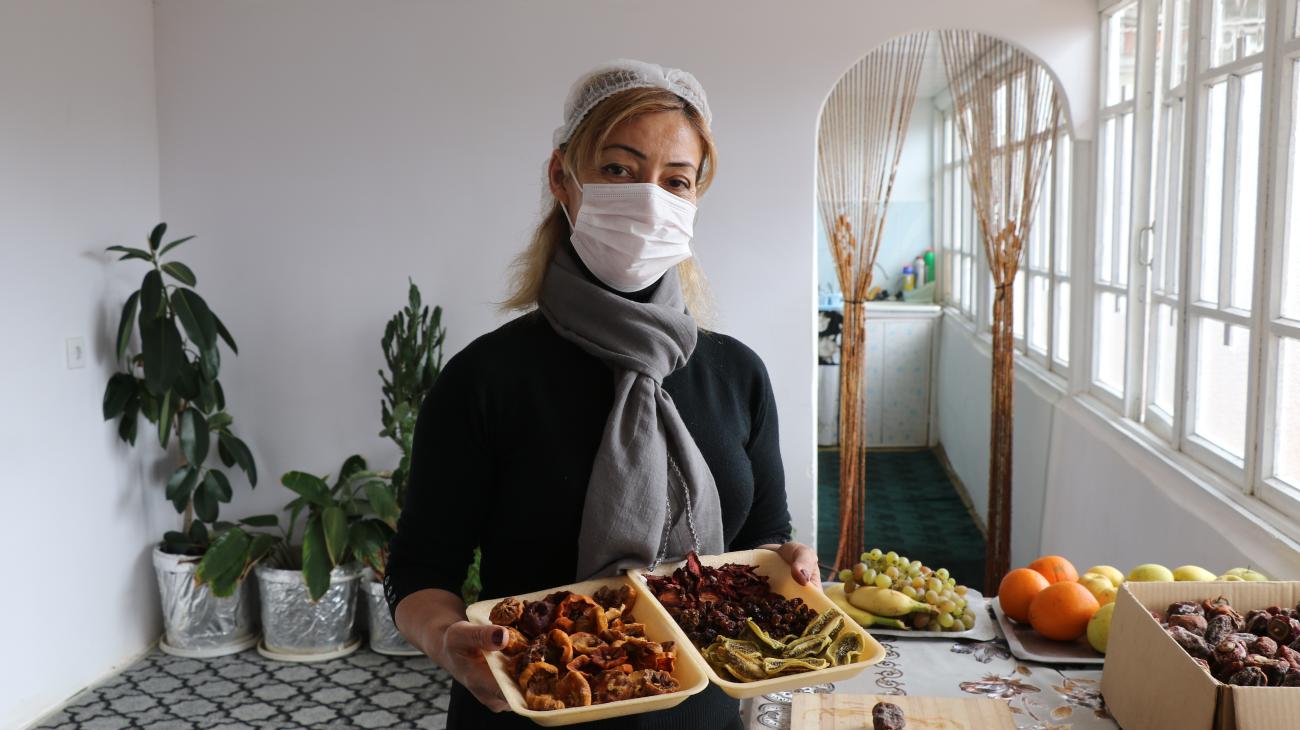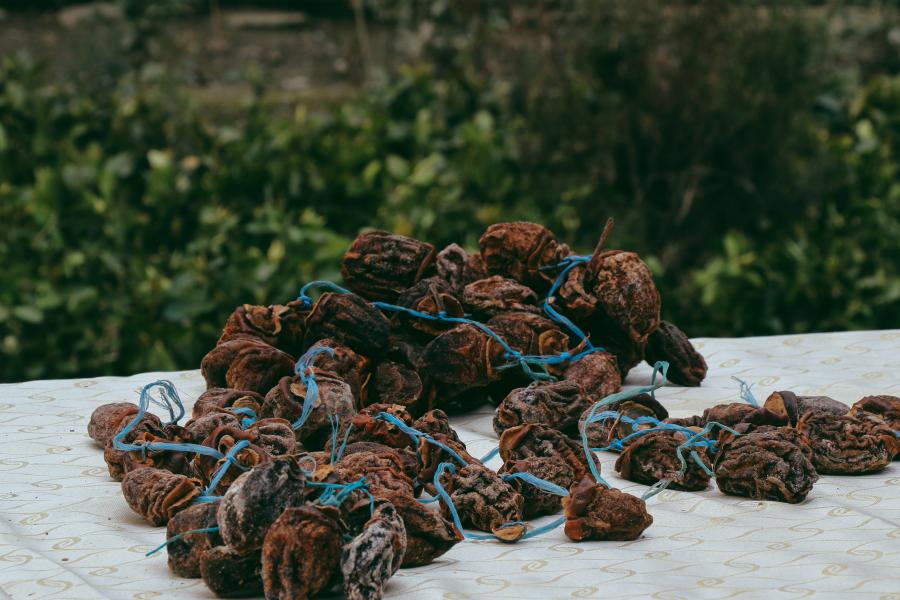A school teacher turns her hobby into dry fruit business

COVID-19 pandemic challenged her business, but she used it as an opportunity for further development.
Tahmina Isayeva from Zaqatala district in the northwest of Azerbaijan started a small business of drying fruits some months before the COVİD-19 pandemic. Although the pandemic challenged her business, she used this as an opportunity to bring the production to a new level.
Tahmina works as a teacher a village school and the rest of the time she is busy with home and yard. In 2019, she attended a series of training on business establishment and development, including business management and accounting, computer and English language sessions.
“At the beginning, it was my hobby to preserve fruits by drying them. We arranged fruits on the drying tray with spaces between them for good air circulation and then set the tray in the sun for several days. It is a traditional method, but it is a long process,”- recalled Tahmina, who is now the first producer of dry fruits in Mukhakh village of Zaqatala district.
One day, she decided to dry fruits for sale. In 2019, the Women’s Resource Center in Zaqatala awarded her a fruit drying machine to launch the business. “It started quite well and people in my circle became first customers of my products. For a year, I produced almost 300 kg of dry fruits. It was not easy as I was dealing with all process myself – harvested apple, plum, cornels, fig and other fruits at our garden or bought exotic fruits like banana, kiwi and orange from a bazaar in wintertime,”- she said.
The dry fruits business was not popular in Zaqatala in past. Usually, people in Azerbaijan bought some dry fruits for Novruz Bayram, a special celebration of spring’s beginning. Just a few years ago people’s interest to healthy food has increased and they started to buy this delicious snack rich in vitamins and minerals.
“After the COVID-19 pandemic, my sales plunged, as people’s capacity to pay decreased. But, I did not get disappointed. Instead, I was searching on the internet for tips to improve my business. Now I am setting up the production process at the yard and going to involve other women to work as a team,” – Tahmina noted by adding about her plans to apply for the national food safety registration to the Food Safety Agency in order to get access to the wider market and expand the business.
To develop the business, Tahmina also applied to the “Development of sustainable and inclusive local food systems in the northwest region of Azerbaijan” project implemented by the Food and Agriculture Organization of the United Nations (FAO) with the financial support of the European Union.

The project is mainly focused on creating local inclusive and efficient models of agriculture and the food system for selected local agri-food products, as well as facilitating access to markets by strengthening ties between producers and buyers and expanding the potential of agritourism in the region. It also allows small farmers and processors to acquire the skills and knowledge they need to create profitable and sustainable agricultural enterprises.
“This kind of project is very useful and has positive impacts on us. Usually, women in villages and especially in farming are perceived as an invisible workforce and their role in rural communities are hardly recognized. The project creates not only income-generating opportunities for rural women but also makes them feel strong and confident; increases socializing improves their status in family and society,”- Tahmina concluded.


